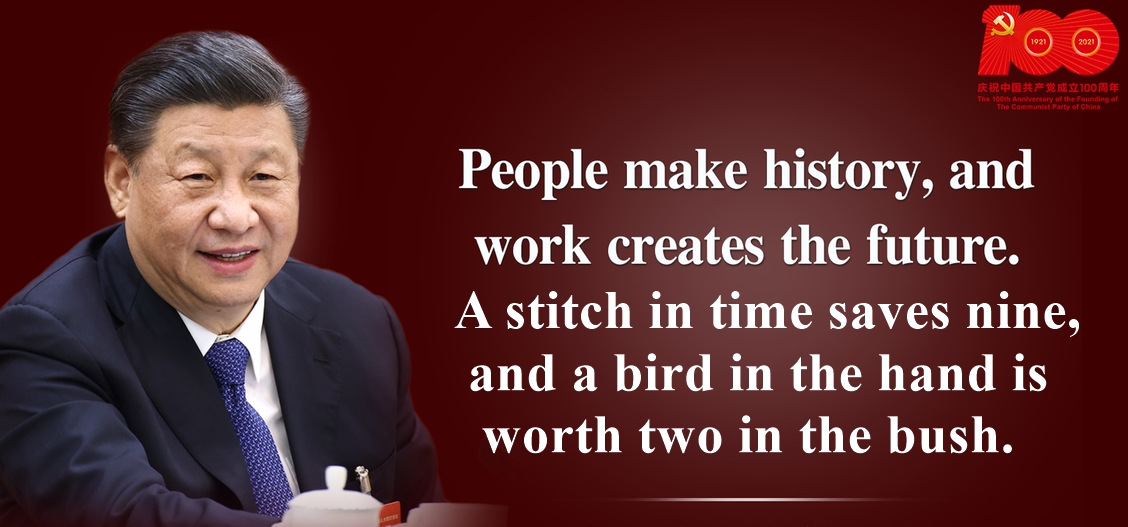
Finally: “What Xi Jinping Really Thinks.” A Time magazine article boils down the dictator’s thought and agenda into several main points.
The writer of the May 11, 2024 piece is Steve Tsang, director of a China Institute at SOAS University of London and one of the authors, with Olivia Cheung, of The Political Thought of Xi Jinping published in December 2023. Tsang writes:
Xi Jinping has changed China fundamentally. He has kept the same political system that Chairman Mao Zedong created when he founded the People’s Republic of China in 1949. Mao governed China with “Mao Zedong Thought,” which he introduced in 1945. Deng Xiaoping put that aside when he took power in 1978 and unleashed the “reform and opening up” era. The Dengist approach was in turn jettisoned with “Xi Jinping Thought” as the de facto state ideology in 2017. Xi is not attempting a Maoist restoration; he has ambitions even greater than [Mao’s].
To properly understand this ambition and what Xi Thought really means, Tsang and Cheung “consulted all publicly available speeches, writings, and policies of Xi in the first comprehensive study of his ideology to explain how this supreme leader of one of the world’s most important countries is upending both China and the world in profound ways.”
Who’s on first?
Is theirs the “first comprehensive” and independent study of Xi’s notions at least in the English-speaking West? Official guides to Xi Jinping Thought are available in Chinese and English, and Amazon carries many of them, as well as something called Good Coloring Book: Xi Jinping, Pictures to Color and Relax.
CCP-endorsed “studies” of Xi Thought don’t count. But in 2021, Elizabeth Economy published The World According to China, promoted as revealing “China’s ambitious new strategy to reclaim the country’s past glory and reshape the geostrategic landscape in dramatic new ways. Xi’s vision is one of Chinese centrality on the global stage, in which the mainland has realized its sovereignty claims over Hong Kong, Taiwan and the South China sea, deepened its global political, economic, and security reach through its grand scale Belt and Road Initiative, and used its leadership in the United Nations and other institutions to align international norms and values, particularly around human rights, with those of China.”
And in 2018 there was The World According to Xi: Everything You Need to Know About the New China by Kerry Brown.
Perhaps the earlier works do not consider Xi’s recorded thought as closely or comprehensively as the new book by Tsang and Cheung. Be that as it may, Tsang summarizes Xi’s vision as follows:
● To create “ ‘one country, one people, one ideology, one party, and one leader.’ Xi’s vision of ‘one country’ requires every Chinese person to submit…to the greater good of China as interpreted by the Party.” Xi is serious about using force “to take Taiwan or territorities defined by the party-state as Chinese.”
● To inculcate the tenets of a “politicized national identity” and turn China’s “ ‘one people’ into new socialist patriots.” People are to believe that whatever the Party does is their best interest. Extreme measures to “educate” the Uyghurs, Tibetans, Hongkongers, and others are justified to create the “one people” or “one family.”
A reinvigorated Chinese Communist Party will be the means of achieving this unity.
New world disorder
Making China great again on the world stage requires revamping “the U.S.-led rules-based international order” in a way that serves China. And “Chinese diplomats and officials must proudly tell China’s story well and demand others to pay due respect to China,” the perspective motivating “ ‘wolf-warrior’ diplomacy.”
Tsang notes several aspects of the foreign policy that flows from this perspective and determination.
● The “transactional nature” of Xi’s strategy enables China to succeed with many underdeveloped or authoritarian countries despite the contradictions of China’s desire for “soft power.”
● China may push for a “multipolar” world (“as it weakens U.S. global hegemony”) but expects to be the dominant power in a new unipolar world by midcentury.
● China is taking “a more assertive approach toward its neighbors and the rest of the world,” as manifested by proliferating border disputes, China’s willingness to pursue troublesome Chinese nationals to the ends of the earth, and its crackdown on Hong Kong.
● China will pursue globalization only when beneficial to China and will throw the rest of the world under the bus as it sees fit (see: pandemic).
● “Fifth, under Xi Thought, the primary focus for China’s foreign policy competition is the U.S. That means engaging in intense and often antagonistic competition with Washington.”
● “Sixth, and most important of all to Xi Thought, is seizing Taiwan and integrating it into the PRC. There is no doubt that Xi prefers a peaceful solution over Taiwan, which can be achieved by Taipei surrendering and accepting ‘reunification’ with China. Since that is unrealistic, Xi requires the PLA to stay prepared to use force.”





